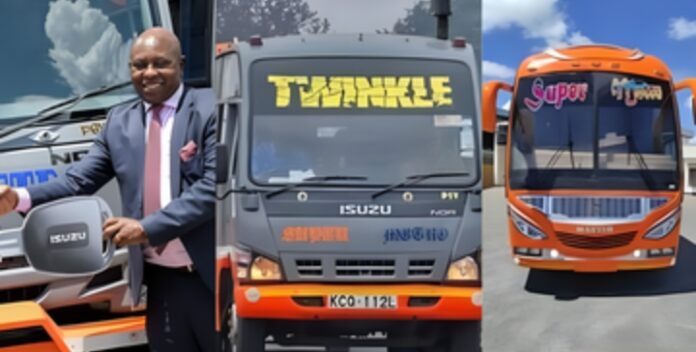Super Metro and Metro Trans Limited have so far revolutionized the transport sector in Nairobi County.
At archives, you’ll often find long queues of passengers willing to board their vehicles while other buses have their touts screaming at the top of their lungs to have passengers commute with them.
A quick spot check on the roads leading to Nairobi; a super metro or Metro Trans matatu will be plying the route.
The buses operate o the Kikuyu-Nairobi route 105, Nairobi-Juja route 236, Nairobi-Thika/Makongeni Route 237, Ngong-Nairobi route 111 and Nairobi-Kitengela route.
In the rather chaotic scene of matatus in Nairobi and efforts by stakeholders to ensure sanity in the industry, Super Metro has done a good job of keeping away from impunity.
Everything about the brand has good reviews, from the driving, stylish buses and neat crews.
According to statistics shown over the years, road transport contributes to a high percentage of Kenya’s total internal freight. And not everyone can afford a car, leaving them with the option of public transport/Uber rides.
So who’s the brains behind the Super Metro matatus that offer exceptional services and display customer professionalism?
Nelson Mwangi
Nelson Mwangi co-founded Super Metro in 2013, along with 13 other directors. His story of establishing the best matatu SACCO has been breathtaking, considering that he never got to finish his studies.
In a past interview, Mwangi disclosed that his goal in establishing the Super Metro was to change how people perceived the public transport industry.
Nelson Mwangi was born in the Mt. Kenya region. He comes from a humble family and was passionate about turning his family’s fortunes around.
Mwangi had to work extra hard in all his activities to achieve this. Despite passing his exams with flying colours, his parents were unable to cater for his university school fees. He ran out of luck and dropped out.
“I was brought up in a very poor family. Coming to Nairobi to look for a job was not easy and at one point I had to roast maize in Eastlands, near Makadara law courts,” Nelson Mwangi revealed.
Getting to co-own Super Metro is a feat that Mwangi says, ‘It is by the grace of God’.
READ: Super Metro introduces electric buses for CBD, Kikuyu, Kitengela routes
After doing several odd jobs, Mwangi got the chance to work in the hospitality industry as a lift attendant. He did his job so well, forming meaningful connections and towards the end of his career in the industry, he became an operations manager.
With his earnings, Nelson Mwangi bought a few PSV vehicles. This would supplement his income from his 9-to-5 job. Sooner, he realized his ambitions in the matatu business. Little did he know this was his gold mine.
He quit his job and ventured into it full-time, and with resilience and hard work, he managed his PSV business successfully.
Later, Mwangi would team up with 13 directors to set up Super Metro Company Limited.
Managing Super Metro
The truth remains that a company is defined by its people. As demonstrated by the downfall of the once-successful Akamba Bus Company, even the best organizations can crumble under the weight of incompetent staff or management.
To avoid such a fate, Super Metro Company Limited implements rigorous measures to ensure they have the right personnel in place.
Nelson Mwangi notes that even drivers compare their experience akin to driving a school bus due to the regulations in place.
READ: Esther Macharia: Why I quit my job at law firm to be Super Metro tout
“Most drivers feel super metro is a school because of the rules and regulations. Drivers and conductors make an application, they bring all requirements and we set a date for an interview,” he said.
“We don’t just handpick them. They must have all the requirements,” Mwangi added.
Here is the process that is taken to recruit drivers and conductors for Super Metro:
1. Firstly, drivers and conductors must submit an application
2. Submit requirements such as a valid driving license, identification card, passport, and certifications where necessary.
3. A panel interviews applicants to evaluate their suitability for the job.
4. Successful candidates are then put on a three-month probation period to assess their performance.
5. Finally, those who pass all the stages are admitted into the team and expected to comply with the rules and regulations set by management.
In addition, when employees are involved in disciplinary issues, they are required to appear before a panel that determines whether they will remain employed in the company or be terminated.
“Maybe a conductor has overcharged, been rude to a customer, ferrying excess passengers or when a driver has been found overlapping, driving under the influence etc, we take action against all that,” Mwangi disclosed.
“We believe in giving the best customer service,” he concluded.









